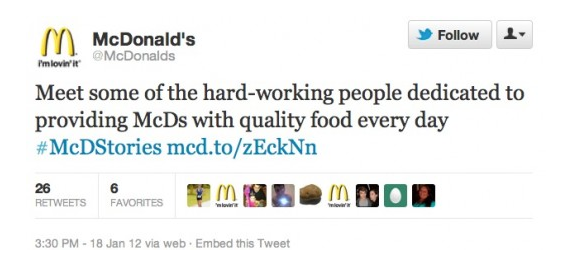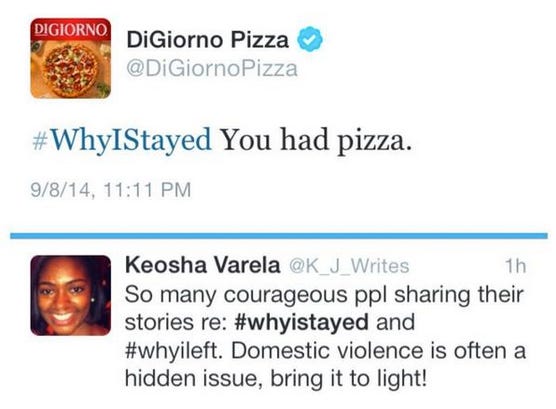Case Studies on Social Media Marketing Failures and Lessons Learned for Local Businesses
Meta Description: Explore real-life examples of social media marketing failures and the valuable lessons learned from them. Equip your local business with actionable insights to enhance your marketing strategies.
In today’s digital landscape, social media is a powerful tool for local businesses looking to engage with their customers, build brand awareness, and drive sales. However, managing these platforms successfully is easier said than done. Social media marketing failures can be costly, not only in terms of lost revenue but also in diminishing brand trust and customer loyalty. This blog post will delve into notable case studies of social media marketing failures, analyze what went wrong, and outline actionable insights and best practices to help local businesses avoid similar pitfalls.
Author Introduction
Meet Eleonora Nowak, a digital marketing strategist with over five years of experience, dedicated to helping businesses optimize their online presence. She has worked with more than 20 local companies, providing them with the insights necessary to improve their social media strategies and enhance engagement.
Understanding Social Media Marketing Failures
The Importance of Awareness
Social media marketing failures are often the result of poor planning, misunderstandings of the target audience, or a lack of cohesive messaging. By learning from these failures, local businesses can gain valuable perspectives on what to avoid, subsequently improving their own marketing strategies.
Lessons from Failed Campaigns
Failure can be a powerful teacher. By analyzing specific cases of social media marketing failures, we can extract lessons that local businesses can apply to their own strategies.
Notable Case Studies
1. The 2017 Pepsi Ad Controversy

Overview: Pepsi launched a commercial featuring Kendall Jenner that was intended to promote unity and peace but instead sparked outrage.
What Went Wrong: The ad was perceived as trivializing social movements such as Black Lives Matter. Instead of connecting with audiences, it seemed tone-deaf and disconnected from reality.
Lessons Learned:
- Do Proper Audience Research: Understand the socio-political climate and sensitivities of your target audience.
- Stay Authentic: Ensure that your messaging aligns with your brand values and represents genuine support.
2. The 2012 McDonald’s #McDStories Campaign

Overview: McDonald’s attempted to launch the #McDStories hashtag to encourage positive storytelling about their brand.
What Went Wrong: Instead, the hashtag was hijacked by users sharing negative experiences, leading to a stream of unfavorable content.
Lessons Learned:
- Anticipate User Interaction: Be prepared for negative feedback and have a plan to address it.
- Create Engaging Content: Focus on fostering genuine connections rather than prompting users to post.
3. The 2015 Digiorno Pizza Twitter Faux Pas

Overview: In a misguided attempt to join the #WhyIStayed conversation, Digiorno tweeted, “#WhyIStayed You had pizza.”
What Went Wrong: The brand co-opted a serious hashtag related to domestic violence in a manner that offended many.
Lessons Learned:
- Exercise Caution with Trends: Ensure that any trending topics align with your brand's voice and ethics.
- Understand Context: Be mindful of sensitive topics and avoid exploiting them for marketing.
Statistical Insights into Social Media Marketing Failures
Understanding the statistics can deepen the context of these failures:
- According to a Hootsuite survey, 54% of businesses report that social media helps them gain new customers. However, 38% cite understanding their audience as their primary challenge.
- A Buffer study revealed that 80% of marketers attribute social media failures to a lack of strategy.
These insights highlight the need for deliberate planning and an understanding of target audiences to avoid common pitfalls.
Best Practices for Successful Social Media Marketing
Actionable Strategies
- Conduct Comprehensive Market Research: Understanding your audience is crucial. Use surveys, interviews, and competitor analysis to gather insights.
- Develop a Clear Strategy: Set specific goals and create a content calendar to maintain consistency and relevance.
- Monitor Trends Carefully: Track trending topics and assess their appropriateness for your brand before engaging with them.
- Be Prepared for Feedback: Have a crisis management plan in place to address negative comments or interactions quickly.
Reinforcing Brand Identity
Staying true to your brand voice is vital. Ensure that your messages resonate with your audience and reflect your organization’s core values.
Engaging with Your Audience
Fostering interaction through polls or surveys can engage your audience and make them feel more connected. Ask your followers about their experiences with social media marketing or which strategies they find most effective.
Expert Insights
Incorporating insights from industry thought leaders can elevate your strategies: “Marketing is not about the stuff you make, but about the stories you tell.” – Seth Godin.
Encouraging testimonials or leveraging user-generated content can build trust and foster community.
Conclusion
Navigating social media marketing can be both exhilarating and daunting for local businesses. By understanding the failures of others, business owners can proactively develop effective strategies while avoiding common pitfalls. Embrace these lessons to refine your approach and cultivate deeper connections with your audience.
If you found these insights helpful, we encourage you to share your own experiences in the comments below. Explore more resources related to social media strategies on our blog to keep enhancing your marketing efforts!
